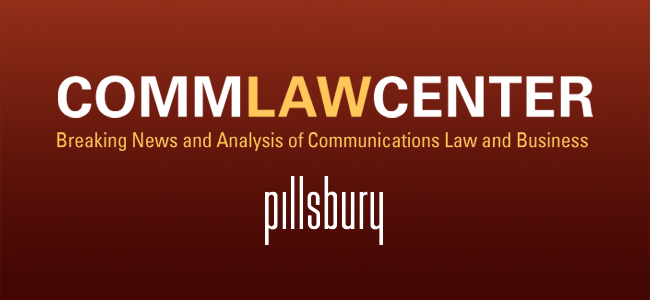Headlines: FCC Begins to Move on Pending Video News Release Complaints Failure to Monitor Tower Lighting Results in $12,000 Penalty Video News Releases Garner $4,000 Fines for Two Television Broadcasters After a flurry of complaints from advocacy groups a few years ago raised the issue at the FCC, the Commission…
The FCC Takes Its Indecency Case to the Supreme Court, But Without Enthusiasm
Caught between a rock and the Second Circuit, the FCC hesitantly took the defense of its indecency policy to the Supreme Court today. The FCC filed a petition seeking the Court’s review of the Second Circuit’s decisions in indecency cases involving Fox and ABC programs. Last year, the Second Circuit…
California Court Decision Applies CAN-SPAM Act to Social Media
As we all know, unsolicited spam email can be annoying and intrusive. In 2003, Congress enacted the Controlling the Assault of Non-Solicited Pornography and Marketing (CAN-SPAM) Act to curb spam. As required by the Act, the FTC and FCC adopted rules that prohibit sending unwanted commercial messages without prior permission.…
Client Alert: Clock is Ticking on ICANN gTLD Process: As More Entities Seek New Domain Names, Others Should Doublecheck Their Trademarks
4/12/2011 The board of the Internet Corporation for Assigned Names and Numbers (ICANN) has scheduled a June 20th meeting to approve the process for proposing new generic top-level domains (gTLDs). If this date holds, the application process will begin in late October, with new gTLDs being approved and added to…
Client Alert–The CAN-SPAM Act Applies to Social Media Messaging, Rules Federal Court in California
4/7/2011 On March 28, 2011, the U.S. District Court for the Northern District of California held in Facebook, Inc. v. MaxBounty, Inc.< sup>1 that messages sent by Facebook users to their Facebook friends’ walls, news feeds or home pages are “electronic mail messages” under the CAN-SPAM Act. The court, in…
The iPad App Flap – What’s the Big Deal?
Ever since Time Warner Cable released an app that allows users to watch two or three dozen cable channels on iPads we’ve been barraged by press reports of litigation and plans of other multichannel providers to launch similar services. Cablevision has announced it’s launching a similar app that lets subscribers…
Deadline to Obtain Interference Protection From White Spaces Devices Just Days Away
Last Fall, the FCC adopted final rules allowing Part 15 unlicensed Television Band Devices (TVBDs) to operate in “white spaces”, the slivers of unused spectrum in the television band. To find available slivers of spectrum, the TVBDs will consult a database that is intended to contain information about every use…
FCC to Advertisers: Don’t Discriminate or We’ll Punish the Broadcasters
I wrote last week about the FCC’s announcement that broadcasters must certify in their license renewal applications that their advertising contracts have, since March 14, 2011, had a nondiscrimination clause in them. Specifically, broadcasters must certify that their “advertising sales agreements do not discriminate on the basis of race or…
FCC Enforcement Monitor
Pillsbury’s communications lawyers have published FCC Enforcement Monitor monthly since 1999 to inform our clients of notable FCC enforcement actions against FCC license holders and others. This month’s issue includes: Florida FM Translator Fined $13,000 for Unauthorized Operations Latest Public Inspection File Violation Nets Upwardly Adjusted Fine Failure to Monitor…
Client Alert: Biennial Ownership Reports are due by April 1, 2011 for Noncommercial Educational Radio Stations in Texas, and for Noncommercial Television Stations in Delaware, Indiana, Kentucky, Pennsylvania and Tennessee
3/18/2011 The staggered deadlines for filing Biennial Ownership Reports by noncommercial radio and television stations remain in effect and are tied to their respective license renewal filing deadlines. Noncommercial educational radio stations licensed to communities in Texas, and noncommercial television stations licensed to communities in Delaware, Indiana, Kentucky, Pennsylvania, and…
